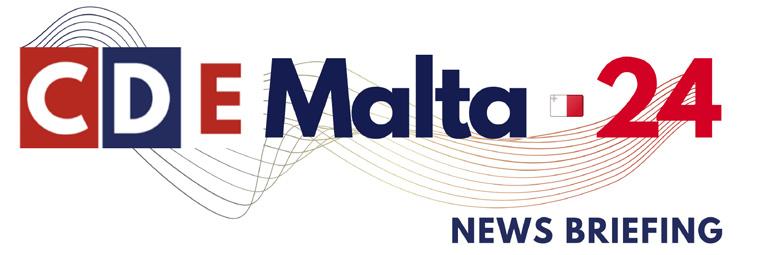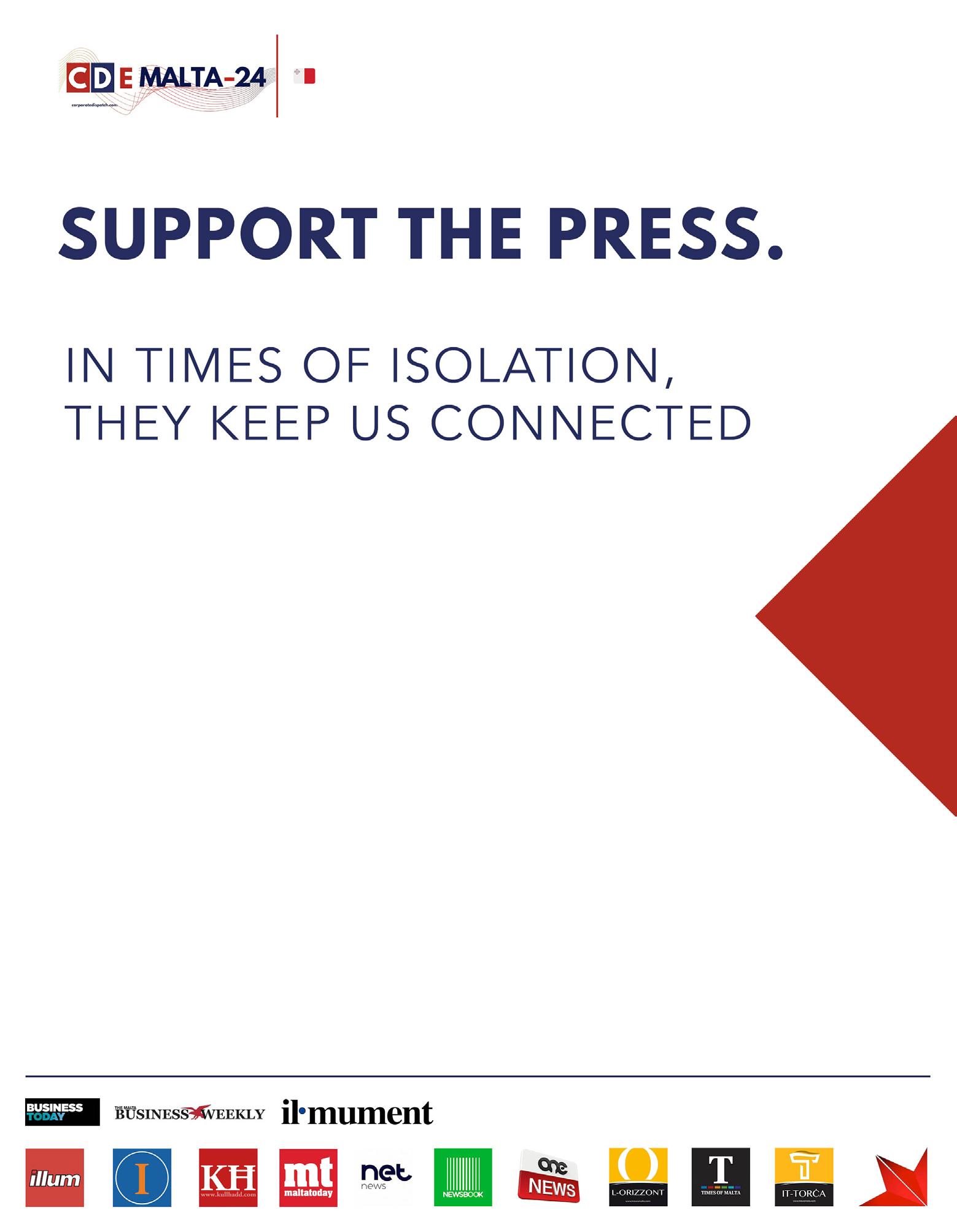
3 minute read
Reskilling a Nation
Corporate DispatchPro

LAWRENCE ZAMMIT
Reskilling a Nation
The link between education and the economy is a challenge that any country faces. In a small country like Malta, where the quality of our human resources drives growth of our economy, the issue becomes more challenging. There are a number of considerations to be made to put the issue into perspective.
We need to accept the fact that education always works with a time lag. Let us take a practical example. If today there is a shortage of persons in a particular area, the education providers will need at least ten years to start closing the gap. Why ten years, one might ask.
The process starts with the choice of subjects in secondary education at the age of thirteen. Then another two years of postsecondary education and possibly five years of university education. That makes a total of ten years.
While this is taking place, businesses are taking decisions that will eventually lead to the creation of jobs or the elimination of jobs in the country. These decisions cannot wait for ten years before they are implemented. So we could end up with a situation where by the time the first graduates start to appear on the scene, the opportunity would have been lost.
On the other hand, it is also pertinent to ask about the outcome of education. What should be the outcome of education provision in a country. I do not believe that education is there to prepare students for employment. That makes education utilitarian.
Education is there to prepare young persons to become responsible citizens. Admittedly a by-product of that is employment; however it is not just employment that makes a person a responsible citizen.
Given the change that our country goes through in various sectors, such as the economy, technology, socially, we cannot keep on





Corporate DispatchPro


channelling students into very specific jobs. They need to be prepared for a career change that would require new skills and knowledge. As such I strongly believe that we should stop teaching specific subjects such as economics and accounts at a secondary level and focus on more generic subjects such as business studies.
In this regard we also need to appreciate that life skills are equally important as academic knowledge. As a country we cannot abdicate from our responsibility to ensure that young people learn the appropriate life skills and develop the appropriate qualities, which they will need in later life. Again, we can take a practical example. We cannot expect our students to be able to think critically, if in a classroom they are forced to learn things by heart and made to feel afraid to ask challenging questions.
Today the primary role of the teacher is not so much to teach a subject but to teach students how to learn and to imbibe in them a thirst for learning.
We have often been told that lifelong learning is the answer. It is in fact the answer. However lifelong learning requires a change in our culture. We need to stop making the acquisition of academic certificates the ultimate goal in life, because this makes people think that, once they have acquired the academic certificates, they do not need to keep on learning. We cannot develop a knowledgebased society by simply encouraging persons to go through tertiary education.
A knowledge-based society is not a society where the number of graduates exceeds a certain percentage of the population. It is a society where, whatever one’s work is, one is doing it professionally and is keen to keep on improving.
To my mind, reskilling a nation requires not so much an education process, but requires a culture change where learning becomes a way of doing things, where learning is seen as a creative process, and where nurturing learning becomes a way of transforming our country.





